24 Ways Sharing Your Passion Can Break Down Barriers with Intimidating People
Sharing your passion can transform intimidating professional relationships into meaningful connections, as demonstrated by numerous experts across diverse fields. When people authentically express their interests, from music and art to technical expertise and cultural commitments, barriers of hierarchy and distance naturally dissolve. This article explores twenty-four practical ways that genuine enthusiasm creates trust, vulnerability, and unexpected alliances with even the most formidable personalities.
- Vulnerability Transforms Coaching From Transactional To Transformative
- Military Service Created Lasting Veteran Community
- Hands-On Learning Establishes Respect For Craft
- Honesty About Mortality Creates Meaningful Connection
- Cultural Commitment Proves Community Over Commercialism
- Craft Integrity Connects Through Structural Truth
- Food Obsession Transformed Silent Judgment To Friendship
- Shared Curiosity Transforms Business into Partnership
- Amber Knowledge Reveals Deeper Business Values
- Personal Loss Story Creates Professional Trust
- Genuine Curiosity Transforms Professional Relationships
- Technical Excellence Turns Skeptics Into Advocates
- Real Estate Passion Cuts Through Professional Titles
- Creative Problem Solving Melts Away Status Barriers
- Traditional Craft Values Build Unexpected Alliances
- Music Breaks Down Invisible Walls of Hierarchy
- Authentic Tech Talk Erased Corporate Barriers
- Personal Stories Replace Spreadsheets With Connection
- Leading With Love Opens Doors To Connection
- Music Passion Bridged Professional Age Differences
- Artistic Vulnerability Revealed Common Creative Purpose
- Purpose Transforms Expertise Into Meaningful Collaboration
- Shared Weekend Hobby Dissolves Professional Distance
- Passion Builds Trust Through Effort and Progress
Vulnerability Transforms Coaching From Transactional To Transformative
I’m a life coach who’s worked with tech leaders for years, and I’ve learned that shared passion doesn’t just break down barriers–it completely shifts the energy in a room.
I had a client relationship that started rocky. They seemed guarded, almost dismissive during our first sessions. Instead of pushing my coaching framework, I mentioned my own experience being terrified on a ropes course with my son–how heights weren’t my thing, but watching him light up made every shaky step worth it. Their whole posture changed. Turns out they’d just become a parent and were struggling with feeling “not enough” in that role.
That moment of vulnerability around something we both cared about–showing up for the people we love even when uncomfortable–became the foundation of our work together. They stopped performing competence and started exploring what actually mattered. Within three months, they’d set boundaries at work they’d been avoiding for years and reported feeling more present at home.
The barrier wasn’t professional credentials or methodology. It was the assumption that coaching had to be transactional and polished. Sharing something real and slightly messy–admitting I’m not always the fearless dad–created permission for them to stop pretending too. That’s when the actual change started.

Military Service Created Lasting Veteran Community
I’ll never forget this regular who came in during our first year–retired military guy who’d sit alone in the corner, barely made eye contact, stone-faced the whole time. I wanted to talk to him because of the Vietnam vet patches on his jacket, but he seemed like he wanted nothing to do with anyone.
One Tuesday I finally walked over and mentioned I’d served too. Turns out he thought everyone would judge him or didn’t want to hear about it. We ended up talking for two hours about our units, the guys we served with, things civilians just don’t understand. That shared experience of putting on the uniform–the good and the ugly–cut through all the intimidation instantly.
He became one of our biggest advocates in Springfield, bringing in his whole veteran network. Now every Tuesday when we donate half our earnings to local charities, about a dozen vets show up knowing they’re supporting their community while supporting a fellow vet’s business. That connection through service opened a door I didn’t even know was closed.
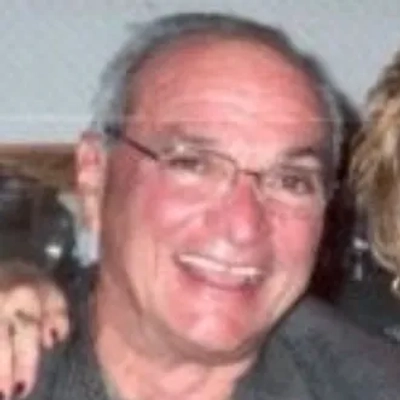
Hands-On Learning Establishes Respect For Craft
I came from management consulting with zero baking experience when I started helping Black Velvet Cakes. Our head decorator–an incredibly talented pastry chef from Europe–was polite but clearly skeptical that some corporate guy could understand what makes celebration cakes work.
The breakthrough happened when I asked her to teach me proper buttercream piping for a children’s birthday order. I spent three hours failing to get smooth edges on a simple unicorn cake while she watched. Instead of getting frustrated, she started explaining how millimeters matter in wedding tiers and why certain color gradients photograph better at events.
That shared struggle opened everything up. She realized I genuinely cared about the craft even if I’d never master it myself, and I got to see how technical decisions directly impact whether a cake becomes the photo centerpiece or gets forgotten. Now when we develop products, she trusts my client feedback because I’ve stood beside her understanding why her techniques matter.
The barrier was credibility. Decorators deal with plenty of business owners who treat cakes like widgets and don’t respect the artistry. Getting my hands messy and actually attempting the work–even badly–proved I valued what she brought to every one of our 50,000+ orders.

Honesty About Mortality Creates Meaningful Connection
I met a well-known figure in the funeral industry who had been in the business for decades. He had that presence that made you feel small in the room. I’ll admit, I felt out of place. Here I was, a guy who’d stumbled into the funeral world after being told I might not live to see another year, talking to someone who’d made a career out of it. But instead of trying to prove myself, I shared what Aura meant to me, that it was never about funerals, really, but about helping people find peace and meaning at a time when life feels most fragile. Something in that clicked with him. He went from polite to curious, asking about my own diagnosis, how I kept going, and why I believed the industry needed a gentler touch. From there, the intimidation disappeared. We spoke for hours, not as professionals from different worlds, but as people who’d both seen how short life can be. Sharing that passion didn’t just earn respect; it built a friendship grounded in mutual understanding.

Cultural Commitment Proves Community Over Commercialism
When we launched Two Flags Vodka, I really wanted to connect with established Polish community leaders in Chicago–people who’d been organizing cultural events for decades. One organizer in particular seemed completely uninterested in meeting with me. I was just another business owner trying to sell something at their events.
Everything shifted at the Polish Constitution Day Parade in May 2025. Instead of pitching our vodka, I showed up with our team under a General Pulaski banner and marched through brutal wind conditions alongside everyone else. After the parade, that same organizer approached me and started asking about our connection to Polish heritage. I shared how my father and I built this brand specifically to honor our immigrant story and General Pulaski’s legacy in both countries.
He opened up about losing sponsorships to generic beer companies that had zero cultural connection. Within weeks, we became official sponsors of Taste of Polonia 2025–the largest Polish festival in America. That relationship now accounts for significant brand visibility and connects us directly with 40,000+ attendees over Labor Day weekend.
The barrier was authenticity. He’d dealt with too many companies treating Polish festivals as just another marketing opportunity. Showing genuine commitment to the culture–not just writing a check–proved we were actually part of the community we wanted to serve.
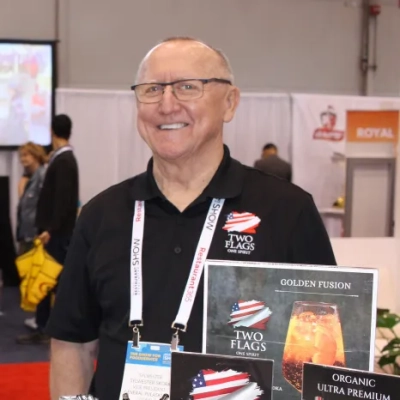
Craft Integrity Connects Through Structural Truth
Sharing my passion for hands-on structural integrity helped me connect with a highly respected, intimidating master craftsman whose opinion I needed to validate my complex metal fabrication work. He was unapproachable because he rarely spoke and held himself to an absolute standard of perfection.
I didn’t try to charm him with small talk. I simply sent him photos of a particularly difficult hands-on flashing detail I was struggling to perfect on a historical roof restoration. I included my technical specifications and honestly explained the structural problem I was trying to solve.
The shared interest—the dedication to finding the one perfect, durable, hands-on solution—broke down the barriers immediately. He saw that my passion was not for abstract talk or quick profit, but for the integrity of the material and the craft itself. He responded by sketching a counter-intuitive, hands-on method for bending the copper to eliminate a subtle stress point I had missed.
The shared interest provided a structural common ground. We bypassed the need for small talk or hierarchy and communicated solely through the language of precision, material science, and hands-on skill. The interaction proved that when you lead with your commitment to structural truth, expertise is instantly respected. The best way to connect with anyone is to be a person who is committed to a simple, hands-on solution that proves your integrity to the craft.
Food Obsession Transformed Silent Judgment To Friendship
I had a regular who came in for months–always solo, always buried in his laptop, barely made eye contact. Turned out he was a food writer from Sydney, and I’d always found him a bit intimidating because he seemed to be silently judging everything we did.
One day I asked him straight up what he thought of our Bacon Benny since he ordered it constantly. He lit up and spent twenty minutes talking about hollandaise technique and why our hash browns had the perfect crisp-to-fluffy ratio. I shared how Lani and I tested that recipe about forty times before opening because we refused to serve soggy shit.
That shared obsession with getting food *right*–not fancy, just properly executed–completely changed our dynamic. He started giving us honest feedback on specials before they hit the menu, and when he eventually wrote about the Sunshine Coast cafe scene, we got a proper shout-out. More importantly, he became one of those regulars who’d bring other food people through our doors.
The barrier that broke down was my assumption that his silence meant disapproval, when really he was just watching to see if we actually cared about the details as much as he did.
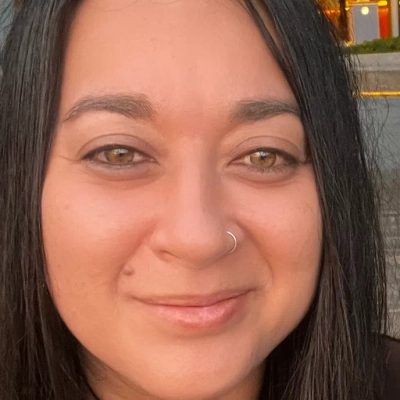
Shared Curiosity Transforms Business into Partnership
A few years ago, I met a potential investor who, at first, seemed incredibly intimidating. He had this reputation for being brutally analytical — the kind of person who could spot flaws in a pitch within the first two minutes. When we first sat down, I could feel the formality in the air. Every word felt measured, and the conversation was purely transactional. It was one of those meetings where you feel like you’re being interviewed rather than having a dialogue.
But somewhere midway through our conversation, he noticed a book on my desk — one on behavioral psychology and decision-making. He raised an eyebrow and said, “You’re into this stuff?” That one question changed everything. It turned out we both had a fascination with human behavior and how people make choices — something that’s deeply relevant in automation and business strategy.
From that point, the tone shifted completely. We started discussing how cognitive biases affect business decisions and how technology could be used to make those decisions more data-driven. It was no longer about a pitch — it became a shared exploration of an idea we both cared about.
That moment taught me something powerful: passion humanizes people. When you share something you genuinely care about, it levels the playing field. It turns authority into curiosity and formality into conversation. What was supposed to be a rigid investor meeting evolved into an hour-long discussion about the psychology of work, and eventually, a long-term partnership built on mutual respect.
Since then, I’ve noticed this same pattern in countless client relationships. When I connect with people not just through business objectives but through shared curiosity — whether it’s tech, design, or even philosophy — it breaks down walls instantly. People stop posturing and start relating.
Sharing your passion is essentially saying, “This is what drives me.” And more often than not, that authenticity opens doors that professional polish can’t. It reminds both sides that behind the titles and the metrics, we’re just humans trying to build something meaningful. That realization has shaped the way I approach every relationship since.
Amber Knowledge Reveals Deeper Business Values
About 5 years ago, I was trying to land a major retail account with this woman who ran an upscale boutique chain in Chicago. She had a reputation for being extremely particular and shutting down suppliers mid-pitch if they didn’t meet her standards. Our first meeting was ice cold–she barely made eye contact.
During my second visit, I noticed she was wearing a vintage amber brooch. I mentioned it was likely from the 1960s based on the honey cognac color and silver work, probably Polish or Lithuanian craftsmanship. Her entire demeanor shifted. Turns out her grandmother had given it to her, and nobody had ever identified its origins before.
We spent 30 minutes talking about amber’s 40-million-year history, the artisans in the Baltic region, and how each piece carries unique inclusions. She opened up about her family’s Eastern European roots and why authenticity mattered so much to her business philosophy. That shared passion for genuine craftsmanship turned her into one of our longest-running wholesale partners.
The barrier wasn’t her being unapproachable–it was that she needed proof someone actually cared about quality and heritage as much as she did. Once amber became the bridge, the business relationship built itself.
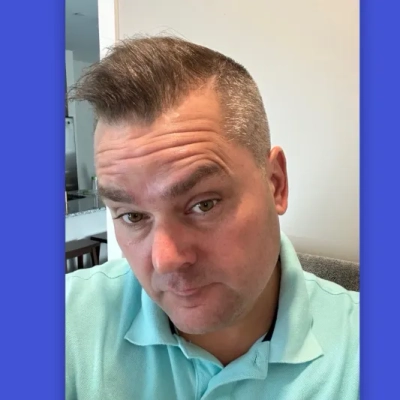
Personal Loss Story Creates Professional Trust
I’ll be honest–veterinarians were some of the hardest people to win over when we started Resting Rainbow. They’d seen every pet cremation provider promise transparency and fail to deliver, so when I’d try to introduce our services, most were polite but clearly skeptical. One vet in particular would barely make eye contact during our first meeting.
What changed everything was when I stopped talking about our policies and instead shared what happened with Molly in 2019. I told him about sitting in a parking lot with her ashes, completely unsure if they were actually hers, and how that feeling of doubt during grief was what made me obsessive about our tracking system. He got quiet, then told me about a client who’d asked him the same question–“How do I know these are really my dog’s ashes?”–and he had no good answer to give her.
That vulnerability opened the door. Within two weeks, he was our first referring partner in Tampa, and he’s since told other vets in his network that we “actually get it.” The barrier wasn’t our service quality–it was that he needed to see I’d lived through the same doubts his clients face every day.
Now when I train new franchise owners, I tell them the same thing: lead with the loss that created this company, not the business model. Pet parents and professionals alike can spot the difference immediately.

Genuine Curiosity Transforms Professional Relationships
When I transitioned from HR management into running ViewPointe’s executive suites operation five years ago, I had zero commercial real estate experience and was honestly intimidated by our attorney clients. These were seasoned litigators and corporate lawyers who knew exactly what they wanted, and I felt like I was constantly second-guessing myself on compliance issues and privacy protocols.
What changed everything was when I started genuinely asking questions about their practice needs instead of just processing their paperwork. One particularly stern senior partner kept requesting specific mail handling procedures that seemed excessive to me. Instead of just nodding along, I asked him to walk me through why timing mattered so much for court filings. He spent 20 minutes explaining statute of limitations deadlines and how a single day’s delay could kill a case worth millions.
That conversation completely shifted our relationship. He realized I actually cared about protecting his practice, not just collecting rent. Now he refers other attorneys to us specifically because we understand the stakes of confidential mail handling and meeting room privacy. Our attorney client base has grown from about 15% to nearly 40% of our tenant mix, and it all started because I admitted I didn’t know something and asked him to teach me.
The barrier wasn’t competence–it was my assumption that showing curiosity would make me look unqualified. Turns out, people love sharing what they’re passionate about when someone genuinely wants to understand their world.
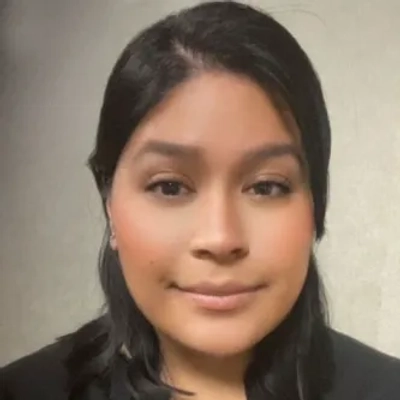
Technical Excellence Turns Skeptics Into Advocates
My dad, Bob, started RiverCity back in 1978, and when I stepped into the CEO role 15+ years ago, I had to build relationships with buyers at major Texas institutions who’d been working with the same suppliers for decades. One purchasing director at a large university system barely gave me the time of day during our first meeting–I was just another vendor trying to get on their approved list.
The breakthrough happened at a Texas Exes networking event where we got talking about the technical side of screen printing. I geeked out about how we’d invested in new equipment that could hit exact Pantone matches for burnt orange–something their previous vendor kept getting wrong on alumni merchandise. He’d been personally frustrated about color consistency issues for years but thought it was just “how printing worked.”
I invited him to tour our 75-person facility in San Marcos and showed him our quality control process firsthand. He watched our team reject shirts that were off by shades most people wouldn’t notice. That hands-on demonstration of our standards turned a skeptical buyer into our biggest institutional client, and we’ve grown that account 300% over the past eight years.
The barrier was credibility. He thought I was just another salesperson making promises, but sharing the actual craft and inviting him behind the curtain proved we were obsessive about the details he cared about.
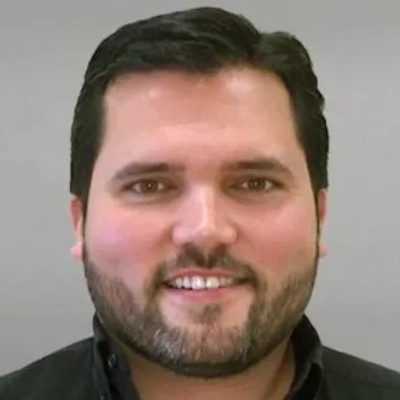
Real Estate Passion Cuts Through Professional Titles
There was a time early in my career when I met a property developer who had an intimidating reputation. He was sharp, tough, and didn’t waste words. I went into that meeting thinking I’d better stay strictly professional, but once we started talking about houses—the kind that make you stop and look twice—the tension broke immediately. We both lit up discussing what makes a home feel right, the small details that separate a solid investment from something truly special. That shared passion shifted the whole tone of the conversation. Suddenly, it wasn’t about negotiating or proving myself; it was about two people who genuinely loved real estate.
From there, the connection came naturally. We talked about architecture, the quirks of San Diego neighborhoods, and how every property tells a story. What I learned that day is that passion cuts through titles and egos faster than anything else. It reminds people why they got into the business in the first place. That conversation turned into a long-term working relationship built on mutual respect—and it started with a simple shared love for houses.

Creative Problem Solving Melts Away Status Barriers
I remember meeting someone at a tech conference who had built a company I’d admired for years. He had this aura that made everyone a little nervous to approach him, and at first, I felt the same. During one of the breaks, we ended up near the same coffee stand, and I noticed he was sketching something on a tablet. I couldn’t resist asking what software he was using. That tiny question opened up a full conversation about design systems, creative workflows, and how technology can amplify human creativity.
What struck me was how quickly the dynamic shifted once we started talking shop. The intimidation melted away because we were just two people excited about solving similar problems in different ways. That moment reminded me how powerful shared curiosity can be. It doesn’t matter how senior or successful someone is. When you speak the same creative and technical language, hierarchy fades. Since then, I’ve made a point to lead with genuine enthusiasm rather than small talk. In tech, especially, passion bridges gaps faster than credentials ever will.

Traditional Craft Values Build Unexpected Alliances
I’ve been running marketing for a barbershop since day one, and honestly the most intimidating person I ever dealt with was our landlord when we were negotiating our first lease expansion. The guy was old-school real estate, never smiled, and had a reputation for shutting down small businesses over minor lease violations.
During one tense meeting, I noticed he had a vintage barbershop pole replica in his office. I asked about it and he lit up–turned out his grandfather owned a barbershop in the 60s and he grew up sweeping hair off the floor. I showed him our content strategy focused on preserving traditional barbering techniques, the centuries-old craft we talk about in our mission.
That completely shifted the dynamic. He went from treating us like another risky tenant to actually caring about our success because we were honoring something from his childhood. He ended up giving us better terms and now stops by monthly to see how we’re keeping “the real barbershop culture” alive.
The barrier it broke was purely transactional versus relational. Once he saw we weren’t just another trendy shop trying to flip a quick profit but actually invested in the craft’s legacy, we became partners instead of adversaries.

Music Breaks Down Invisible Walls of Hierarchy
I once worked with a senior executive who seemed pretty closed off—polite but hard to read. During a team lunch, I happened to mention my love for local Austin music, and his face completely lit up. Turns out he’d spent years playing in small bands before his corporate career. That conversation changed everything.
After that, our interactions felt more relaxed and genuine. It was easier to ask questions and get honest feedback because the tension was gone. Sharing that passion for music broke down the invisible wall of hierarchy. It reminded me that sometimes the quickest way to connect with someone intimidating is to find the human thread you both share.

Authentic Tech Talk Erased Corporate Barriers
I was genuinely intimidated meeting executives at my first IBM networking event during my internship. These were people making million-dollar IT decisions, and I was just a college kid studying Business and CS at Coe. I felt like I didn’t belong in those conversations.
Everything shifted when I stopped trying to sound corporate and just talked about what excited me–emerging tech solutions and how gaming communities solve complex problems faster than traditional business structures. One VP who’d been giving me polite nods suddenly got animated when I explained how gamers probe defenses and find creative workarounds, just like his security team needed to do. We spent 30 minutes discussing how that “gamer mentality” could reshape their DevOps culture.
That authenticity completely erased the experience gap. He started asking for my perspective on their cloud migration strategy and later connected me with three other companies in the Cedar Rapids Corridor. At EnCompass, I now use this same approach–when discussing cybersecurity with non-technical executives, I ditch the jargon and connect it to problems they actually care about, like protecting their revenue and reputation.
The barrier that broke down wasn’t just age or experience–it was the artificial corporate language we hide behind. Real passion for solving problems resonates regardless of your title.

Personal Stories Replace Spreadsheets With Connection
I was pitching a senior buyer at a major national retailer who was notoriously tough. Our meetings were strictly about unit economics and logistics. I felt like our brand’s mission was completely lost in the spreadsheets. She saw us as just another number, and I struggled to build any real connection beyond the purchase order.
During a final meeting, I set the numbers aside and just spoke about why we make our products. I explained our team’s obsession with creating a less painful, more empowering at-home waxing experience. The buyer stopped me and shared her own frustrating salon story. The relationship between us immediately became more friendly and less professional, and it allowed us to connect on a deeper level. It really drove home to me how much of business can be about the human element. You’ve always got to find something to connect on with people before anything else.
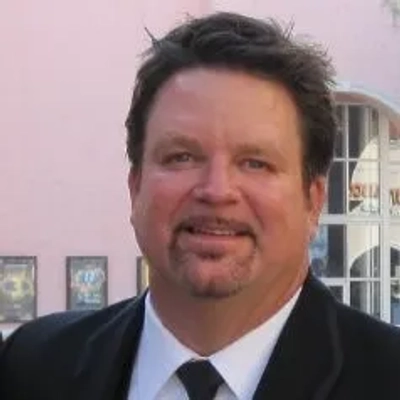
Leading With Love Opens Doors To Connection
I used to feel a bit intimidated by a well-known developer in our field, someone whose work I’d been following for years and admired from afar.
We bumped into each other at a tech event, and during a casual chat, I mentioned how much I enjoy creating brand stories through design and content. That led us to geek out over how much code & storytelling actually have in common. The conversation flowed from there.
Turns out that shared passion did a great job of breaking the ice & turning a one-way admiration into a genuine ongoing connection. It taught me that leading with what you love often opens doors that skill alone can’t.

Music Passion Bridged Professional Age Differences
There are always going to be people who come into your life that you find intimidating. This can happen for lots of reasons or no reason at all. I have found this to be most applicable in work scenarios.
When I was freshly graduated from veterinary school, the office manager at my first employer was one of the most intimidating people I’d ever met. Because I knew it was important to establish a good working relationship with them, I actively tried to find a shared interest.
I found it in our love for not only animals, but also music. Come to find out, we were both huge fans of live music. Not only that, we both really enjoyed going to live gigs. So there we were, two people from different backgrounds, of different ages, connecting over our love for music.
Initially, I had to actively work on growing this connection. It was important to do so because a common interest can go a long way toward eliminating the awkwardness of getting to know someone new, especially if they don’t seem keen on getting to know you.
This shared interest helped us form a bond that made working together much more enjoyable. You may have something in common with the most unlikely people, so before you write someone off because they intimidate you, explore possible shared interests. You may find one that helps you connect.
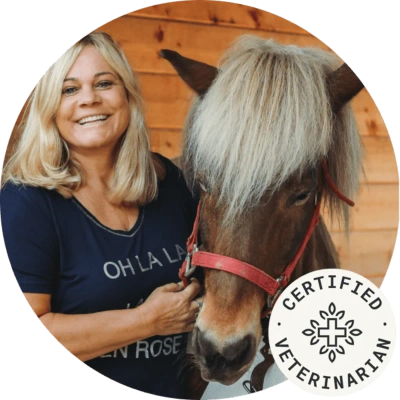
Artistic Vulnerability Revealed Common Creative Purpose
I encountered a photographer whose artistic work impressed me, yet her intense focus made me doubt about initiating contact. I presented her with a sketch of my unfinished lingerie design, which expressed raw emotions through its lines and shapes. Her entire demeanor transformed at that instant. We spent multiple hours discussing our mutual fascination with the female body and our shared interest in vulnerable expressions and the power of soft illumination and dark shadows.
The encounter revealed her true nature to me. Our conversation transformed into a deep discussion between two women who pursued the same goal of using texture and emotion to convey their message. The mutual interest between us created an opportunity to establish genuine relationships.

Purpose Transforms Expertise Into Meaningful Collaboration
When I first started meeting clinical therapists while building Aitherapy, I was intimidated. They had years of experience and credentials, and I was coming from a tech background. But when I shared my genuine passion for making mental health support accessible to people who can’t afford therapy, the dynamic shifted instantly. We stopped talking in titles and started talking in purpose.
That shared passion turned skepticism into collaboration. It reminded me that expertise impresses people, but passion connects them.

Shared Weekend Hobby Dissolves Professional Distance
I once met a treasurer who was a wall of silence. He had a steady voice, an impassive countenance, and a heavy presence in the room. I happened to remark during the meeting that as a lark, I was looking over the weekends at real estate yields and at the spreads of bonds. He raised his eyes and informed me that he did the same thing. The tension immediately passed, and the discussion changed from one of negotiation to one of real give and take.
At that instant, the distance disappeared and the hierarchy of importance vanished, the ego was quieted, and the talk became practical and candid. It revealed to me that positive enthusiasm breaks through formalities much more quickly than studied methods and that shared interests take the chill away from feelings of fear, turning them into mutual respect.
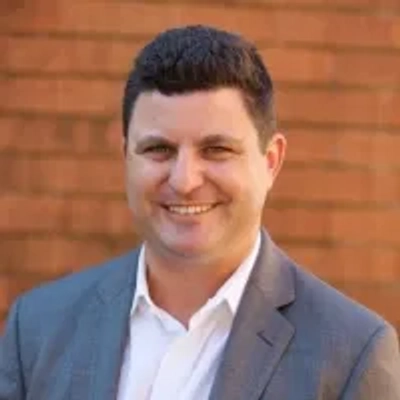
Passion Builds Trust Through Effort and Progress
I connect fastest when I lead with what I actually care about. I grew up obsessed with sports and competition, so I frame conversations around effort, coaching, and winning as a team. I moved into talent because I saw a real need and I was good at it. When you show what drives you and where you put in real reps, even intimidating people relax. It becomes two humans talking about performance and progress. Passion is great. Consistent effort is what earns trust.









